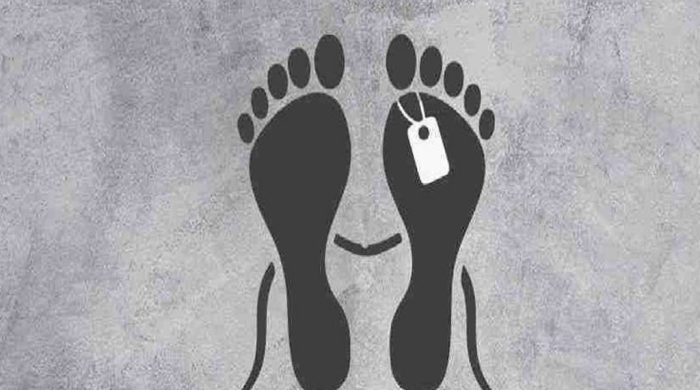Custodial deaths in joint drives raise concerns

- Update Time : Sunday, September 22, 2024
- 19 Time View

At least four people have died in custody following alleged torture during the ongoing joint operations against illegal arms and drugs since September 8, raising concerns among rights defenders.
The interim government, formed on August 8, launched the nationwide drives on September 4 by engaging members of the armed forces, the police, the Rapid Action Battalion, the Border Guard Bangladesh and the Ansars.
Of the four, one died in Gopalganj on September 8, two died in Gaibandha on September 10 and one died in Mymensingh on September 17.
It is particularly important at this time that any law enforcement operations are vigilant in complying with all applicable laws on use of force, rights activist and Supreme Court lawyer Sara Hossain told New Age on Friday.
‘There must be zero tolerance for custodial death or ill-treatment, there needs to be a prompt independent and impartial inquiry into any such allegation and those responsible held accountable and suspended from active duty pending the conclusion of the investigation,’ she added.
Mayer Daak, a platform for families of the victims of enforced disappearance, in a statement on September 19, expressed concerns over the recent incidents of extrajudicial killings, including custodial deaths and incidents of beating people to death.
Supreme Court lawyer Jyotirmoy Barua said that the perpetrators should be brought to justice as per the Torture and Custodial Death (Prevention) Act 2013.
He also said that many incidents of custodial deaths were reported during the Awami League regime in the name of arms recovery and war against drugs.
‘Nothing justifies custodial deaths and the perpetrators must be made accountable as this is a serious violation of the fundamental rights of the people guaranteed by the constitution,’ Jyotirmoy told New Age on September 19.
Home adviser retired Lieutenant General Md Jahangir Alam Chowdhury did not respond to phone calls and text messages for comments.
At a briefing at the Foreign Service Academy on September 19, law adviser Asif Nazrul said that no extrajudicial killing would be accepted.
Elahi Shikder, 25, an accused of attack on military personnel in Gopalganj on August 10, died at Gopalganj Sadar Hospital at about 1:00am on September 8.
The accused was taken to the hospital after he had had fallen sick at about 11:00pm on September 7, said Gopalganj District Jail acting jailer Md Abul Hossain, adding, ‘He had been tortured before he landed in the jail on September 4.’
Gopalganj superintendent of police Mizanur Rahman said that district jail superintendent AL Mamun filed an unnatural death case with the sadar police station for the incident.
‘We are investigating the case,’ Mizanur added.
Asked about the filing of the unnatural death case for a reported torture victim, jailer Md Abul Hossain claimed that the law allowed the prison authorities to file an unnatural death case for any death in jail custody.
On August 22, the Army filed a case with the Gopalganj sadar police station accusing 106 named and 3,200 unnamed people of assaulting army personnel, vandalising vehicles and snatching weapons.
On September 10, five people were detained in a joint operation at Gobindi village of Saghata in Gaibandha and taken to a hospital few hours after their arrests. Of them Soharab Hossain Appel, 35, and Shafiqul Islam, 45, died at hospitals.
The five were detained from Gobindi area and taken to the hospital few hours after their arrests.
Shafiqul died at Bogura Shaheed Ziaur Rahman Medical College Hospital while Soharab died at Gaibandha General Hospital on early September 11.
Gaibandha superintendent of police Md Mosharraf Hossain said that the five were detained in a joint drive and were admitted to the hospital as they fell sick after their arrest.
A Juba Dal leader died during an arrest operation by the joint forces in Golpukurpar area of Mymensingh on September 17.
Kotwali model police station inspector Anwar Hossain said that the deceased, Saidul Islam, 40, was a joint general secretary of Mymensingh city Juba Dal.
Saidul Islam was accused of land grabbing, extortion and violence after deposed prime minister Sheikh Hasina resigned and fled to India amid the student-people uprising on August 5.
As several complaints were lodged, a team of the joint forces launched an operation to arrest Saidul at about 10:00pm on September 16.
During the arrest, he was allegedly beaten up by the members of the joint forces.
He was later taken to Mymensingh Medical College Hospital, where on-duty doctors declared that he was brought dead to the hospital.
According to the staff members at the emergency department of the hospital, the members of the joint forces also admitted six injured people to the hospital.
According to rights organisation Ain O Salish Kendra, at least eight people, including two women, died in custody in January–July.
Manabadhikar Shongskriti Foundation reported at least seven custodial deaths in August alone.
On September 7, the home ministry said that 5,818 weapons of different types were looted and 3,993 were recovered till September 5.
The Police Headquarters in a release on September 19 said that they recovered 185 weapons and arrested 84 people in September 4–18.















